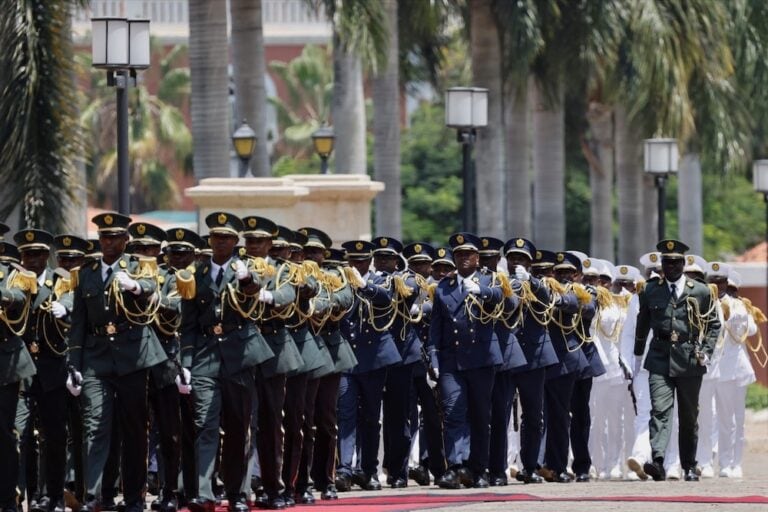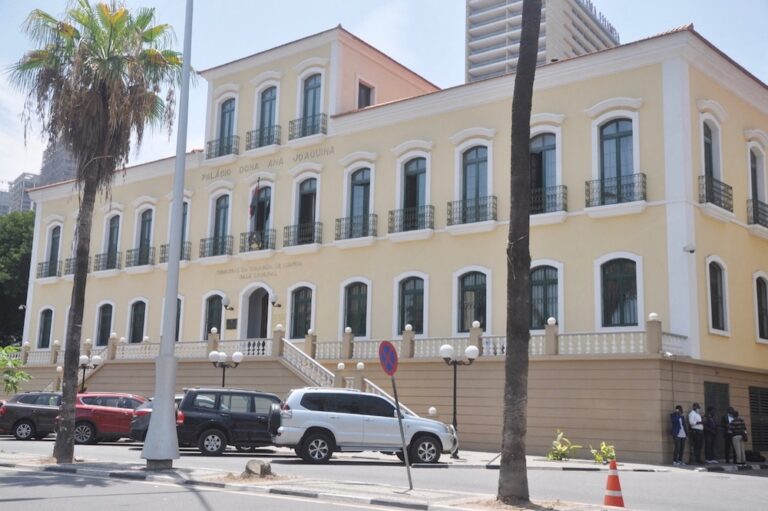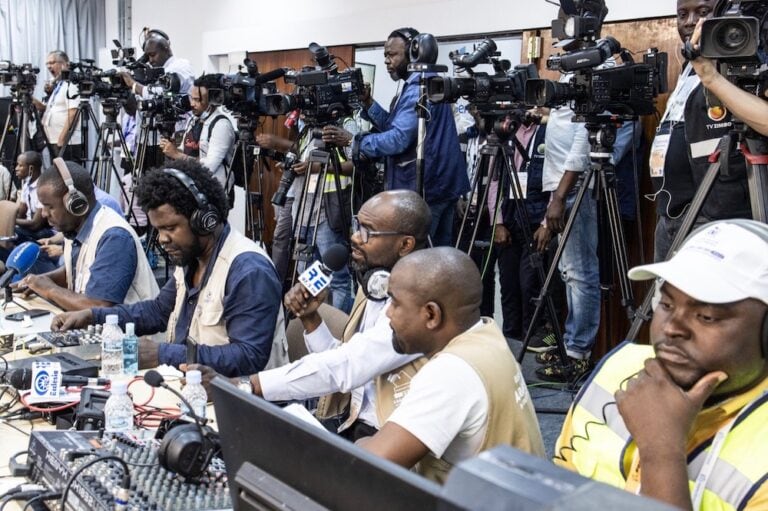(MISA/IFEX) – The director of the biweekly “Folha 8”, William Tonet, has been barred from leaving the country, placing his newspaper in financial jeopardy as a consequence. **Updates IFEX alerts of 14 September, 17 August, 13 August, 11 August and 10 August 1999** Tonet said that on 10 September 1999 his name had been listed […]
(MISA/IFEX) – The director of the biweekly “Folha 8”, William Tonet, has
been barred from leaving the country, placing his newspaper in financial
jeopardy as a consequence.
**Updates IFEX alerts of 14 September, 17 August, 13 August, 11 August and
10 August 1999**
Tonet said that on 10 September 1999 his name had been listed among citizens
barred
from leaving the country. He had to cancel a trip shortly after getting
information that the emigration police at Luanda International Airport had
received an order from the Criminal Investigation Department (DNIC) to
prevent him from traveling abroad.
Tonet was planning a trip overseas to meet donors in a bid to secure
financial and material support for his newspaper, which had been facing
serious constraints in the acquisition of printing materials from the local
market amid daily hikes in inflation.
Tonet told MISA-Angola, “It goes without saying that this interdiction is
illegal. It was not decided by the court. This interdiction will affect the
paper’s performance seriously and can dictate an end to everything. No one
can keep this pace for long. Most of the private papers will collapse if we
don’t find a way out. Inflation, political pressure and police repression
are our main enemies.”
According to Tonet, “it will be suicide if we keep on chasing the
depreciation of the local currency by increasing prices of the newspapers
every day in line with inflation.”
The Angolan currency, Kwanza Reajustado (Kzr 6,000,000.00 = US$1.00), has
recorded an unusual decline in the last few weeks, reaching a depreciation
rate of 120 per cent in less than two months. Last month, “Folha 8” was
forced to suspend two consecutive editions “for lack of money to pay the
printing press”.
Meanwhile, the church-owned FM station, Radio Ecclesia may consider defying
a recent ban imposed on the station preventing it from broadcasting certain
foreign news programmes.
In a letter to Radio Ecclesia on 7 September, the Minister of Social
Communication, Hendrik Vaal Neto, ordered the radio to stop relaying live
broadcasts of a news programme from the Portuguese catholic station, Radio
Renascenca. Neto claimed that his ministry had been monitoring the
“Renascenca in Africa” programme and had concluded that “they are a flagrant
violation of the Angolan Press legislation and the broadcasting law.”
The letter, however, did not mention which specific articles of the
legislation were being contravened. The chief editor of Radio Ecclesia,
Paulo Juliao, told MISA-Angola that “the document is too vague. We could
easily notice that the minister did not have a legal and convincing reason
to ban the programme.”
Juliao said the board would consult with its lawyer in order to determine
the legal implications of the Minister’s order and would resume the live
programme if the measure was found to be unlawful.
Radio Renascenca’s Africa programme is a one-hour daily production which
connects catholic radio stations in the various Portuguese-speaking
countries in Africa (Angola, Cape Verde, Mozambique and Sao Tome). Recent
programmes included debates on the political and social situation in Angola,
featuring interviews with members of the rebel UNITA leadership.
The ban imposed by the minister apparently does not extend to all foreign
news broadcasts, since the independent Radio 2000 based in Lubango, in the
south of Angola, continues to broadcast news programmes from the Voice of
America. A radio spokesperson, however, conceded that they were more careful
these days to ensure that the VOA broadcasts did not contain anything
political or controversial about Angola.
Recommended Action
Send appeals to authorities:
workers in Angola
harassment
of
journalists, strongly protesting this, and pointing out that it is both a
violation of the Angolan Constitution and the fundamental human rights of
media workers as enshrined in international treaties to which Angola is a
signatory
a
result of detentions and interrogations, was contrary to a letter by Minster
Vaal Neto to the Committee to Protect Journalists in June this year in which
he said that “the state and the Government of the Republic of Angola have
never intended to harass any journalists or shut down the private media.”
The letter went on to say, “After more than a decade of
democracy, it has been shown that, even in war, the Government declared no
state of emergency or exceptional circumstance, and no journalist can be
found in any Angolan prisons who have justly or unjustly been condemned and
arrested for having published writings or reports.”
Appeals To
Hon Jose Eduardo dos Santos
President of the People’s Republic of Angola
Fax: +244 2 392 733/ 391 476/ 331 898Hendrick Vaal Neto
Minister of Information
Fax: +244 2 343 495
Please copy appeals to the source if possible.


